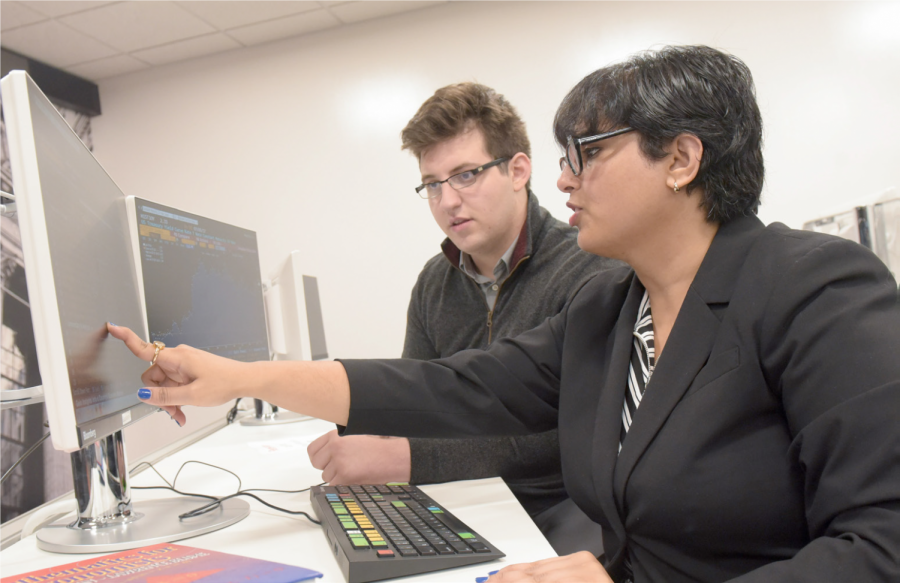Student presents at regional economics conferences
Laert Fejzullari, third year chemistry and economics double major, has recently been granted the opportunity to present his undergraduate work in collaboration with Herman Shani, assistant professor of finance, at two of the nation’s largest economic conferences in the spring of 2018.
Fejzullari entered BW strictly as a chemistry major, but said that he decided to adopt economics as a second major after participating in one of the introductory courses to fulfill his core requirements and subsequently fell in love with the content.
“Approaching economic questions with a scientific mindset makes it easier and quantifiable,” he said.
Fejzullari credits his scientific studies for developing his problem-solving mindset, which he said has been a major benefit in his economics studies.
Shani said that when she met Fejzullari in the fall of 2016, she was only in her first semester at BW.
“He took an advanced statistics class with me… told me that he wanted to do a PhD program, and asked what he should to do give him a niche when applying for top ranking schools,” she said.
From there, the two began efforts to develop the eventual project. Shani said she let Fejzullari borrow some of her graduate books and he began exploring the background content.
The eventual question that developed is straightforward: is there a correlation between the attractiveness of a CEO and their respective pay? However, the analysis is rigorous.
“[Fejzullari] had to go beyond what a typical BW undergraduate economics student learns,” which Shani said is primarily elementary statistical methods and basic modeling.
Fejzullari said that throughout his efforts in the spring of 2017, he noticed the potential benefits of support this project would gain through the Summer Scholars program.
Fejzullari’s application was accepted, and throughout the summer of 2017, he and Shani conducted their research, eventually gathering enough information to construct a poster to present their initial findings.
The conferences, at which the pair presented their research, are part of a series of regional meetings between professors, doctoral students, and independent researchers, where various economic research projects are presented and open to suggestions.
“The idea is that if you are conducting a research topic in its early stages, you present to get feedback,” Shani said. “Typically, it takes give years to publish a paper in [economics] – you write the trial paper in a year, and the next four years are about presenting and incorporating the feedback.”
Interestingly, Shani said that the Eastern Economics Conferences did not have a registration for undergraduate students. Regarding that conference, Shani said that most people probably presume that only graduate or doctoral students are going to be presenting, and that undergraduate presenters are rarer.
Regarding the Midwestern Economic Conferences, Shani said that some undergraduate students from institutions like the University of Michigan and Harvard have regularly presented there over the past few years, prompting the development of specific undergraduate registration.
“It’s a huge honor [to present],” Fejzullari said. “Even top students in great programs don’t get an opportunity like this. I don’t think it would be possible without the determination of my professors.”
Shani said that in the near future, the pair hopes to compare the rate at which attractiveness plays a role in CEO pay, with regard to whether the CEO in question is a man or a woman.
Fejzullari is set to present his findings at the Midwestern Conference over the weekend of March 24-25.
The Exponent is looking for financial contributions to support our staff and our newsroom in producing high-quality, well-reported and accurate journalism. Thank you for taking the time to consider supporting our student journalists.











































